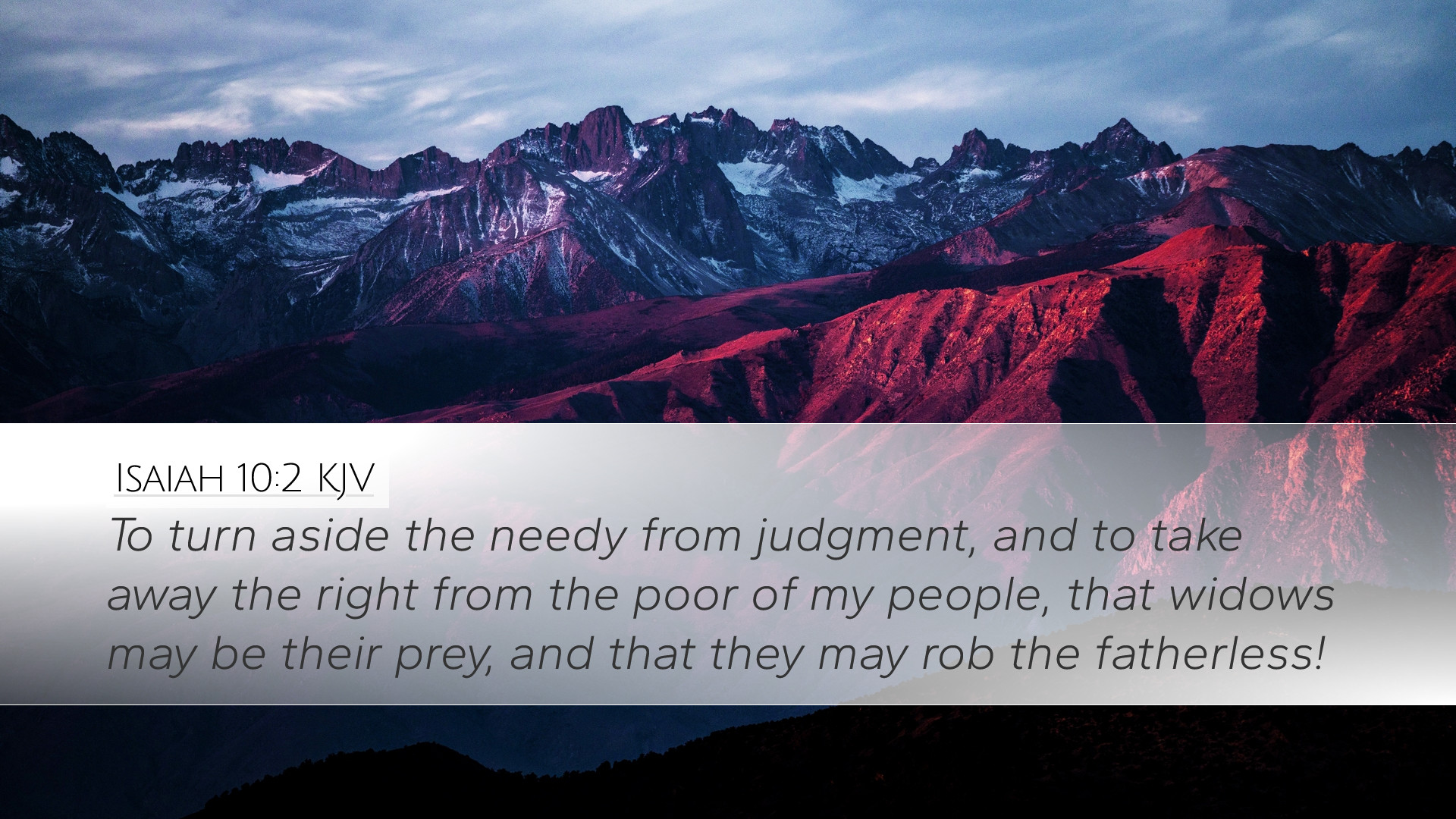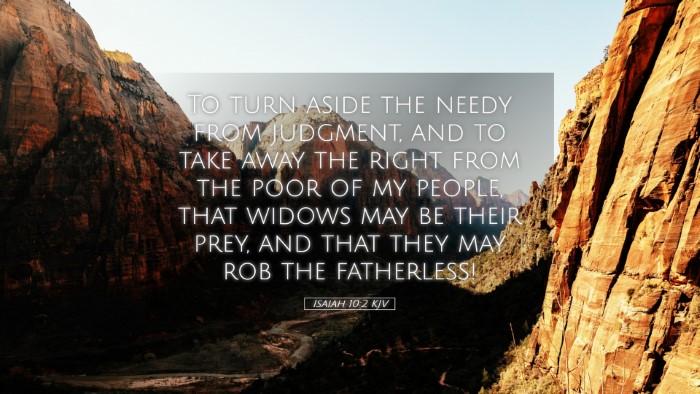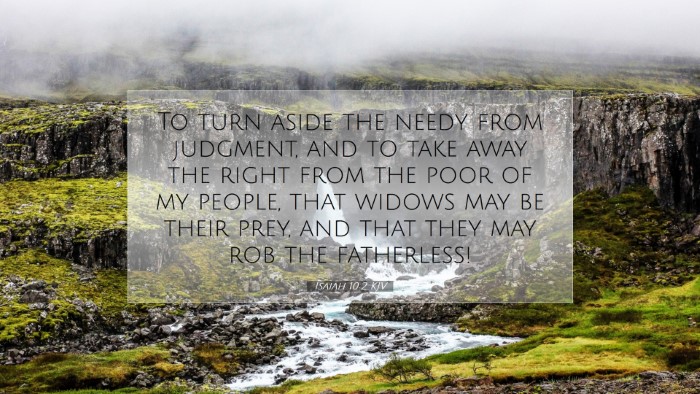Commentary on Isaiah 10:2
Isaiah 10:2 states:
"To turn aside the needy from judgment, and to take away the right from the poor of my people, that widows may be their prey, and that they may rob the fatherless!"
Introduction
This passage from the prophet Isaiah serves as a profound indictment of social injustice and the corruption of leadership. The commentary from various public domain scholars emphasizes not only the historical context of Israel but also the timeless moral implications of the text.
Contextual Background
In the context of Isaiah’s prophecy, the nation of Israel was facing threats from Assyria. This chapter serves as a warning against the arrogance and oppression exercised by the leaders of Israel, who, instead of protecting the vulnerable, were exploiting them.
Historical Context
- Assyrian Threat: The rise of Assyria was a backdrop to many of Isaiah’s messages, instilling fear and leading to moral decay.
- Corruption Among Leaders: Leaders were failing in their duties, neglecting justice, and preying upon the very people they were meant to protect.
- Spiritual Apostasy: The social injustice reflected a deeper spiritual failing, wherein leaders had turned away from God’s commandments.
Commentary Insights
Insights from Matthew Henry
Henry emphasizes that the heavy hand of injustice is not exclusive to ancient times. His observations lead him to declare that:
- Neglect of the Needy: The leaders’ primary sin was neglecting the needs of the poor, showing that the true measure of leadership is found in the care for those who cannot defend themselves.
- Justice Delayed: When judgment is withheld from the needy, it reflects a society where moral principles are corrupted.
- Divine Judgment: Henry warns that such exploitation cannot escape divine scrutiny, and a day of reckoning will follow for those who perpetuate injustice.
Insights from Albert Barnes
Barnes’ commentary delves into the nature of sin depicted in this verse, noting that:
- Systematic Oppression: The passage highlights a systemic nature of oppression where the rights of the poor and marginalized are trampled upon intentionally.
- Widows and Orphans: Emphasizing the plight of widows and orphans, Barnes points out that these groups symbolize vulnerability and the need for societal protection.
- Examples of Injustice: By mentioning those most marginalized, Barnes reminds readers that any society that allows the most vulnerable to be preyed upon has strayed far from God’s intended order.
Insights from Adam Clarke
Clarke’s remarks highlight the broader implications of Isaiah 10:2, particularly its relevance for contemporary society:
- Ethics of Leadership: Clarke asserts that true leadership ought to embody fairness and care. The failure to protect the needy is a fundamental betrayal of one’s role.
- Consequences of Injustice: He warns that social injustice will inevitably lead to societal instability, as discontent among the oppressed can spark unrest.
- Call for Righteousness: Clarke calls for a return to principles that uphold righteousness, urging leaders to implement systems that favor justice and mercy.
Theological Implications
The insights gathered from these commentators culminate in several vital theological themes:
- God’s Concern for Justice: The text affirms that God is deeply concerned with justice and righteousness, especially regarding the marginalized.
- Human Responsibility: It underscores human responsibility in advocating for justice and defending the rights of the vulnerable.
- Divine Judgment: It serves as a stark reminder that neglecting these responsibilities incurs the wrath of God, a theme consistent throughout Scripture.
Application for Today
Isaiah 10:2 transcends its historical context and demands reflection and action from contemporary believers:
- Advocacy for the Marginalized: Pastors and church leaders must actively advocate for justice and welfare programs that support the needy.
- Reflection on Leadership: Students and scholars should examine the qualities of their leaders to ensure they align with biblical mandates of justice and righteousness.
- Community Engagement: Congregations are called to engage with local communities to identify injustices and seek remedies in line with biblical teachings.
Conclusion
Isaiah 10:2 provides a powerful lens through which to view societal structures and leadership ethics. As highlighted by Matthew Henry, Albert Barnes, and Adam Clarke, the profound truths contained within this verse challenge each generation to uphold justice and protect the vulnerable, remaining ever vigilant against the social injustices that threaten the fabric of society. In doing so, they reflect the heart of God and contribute to the advancement of His kingdom on earth.


